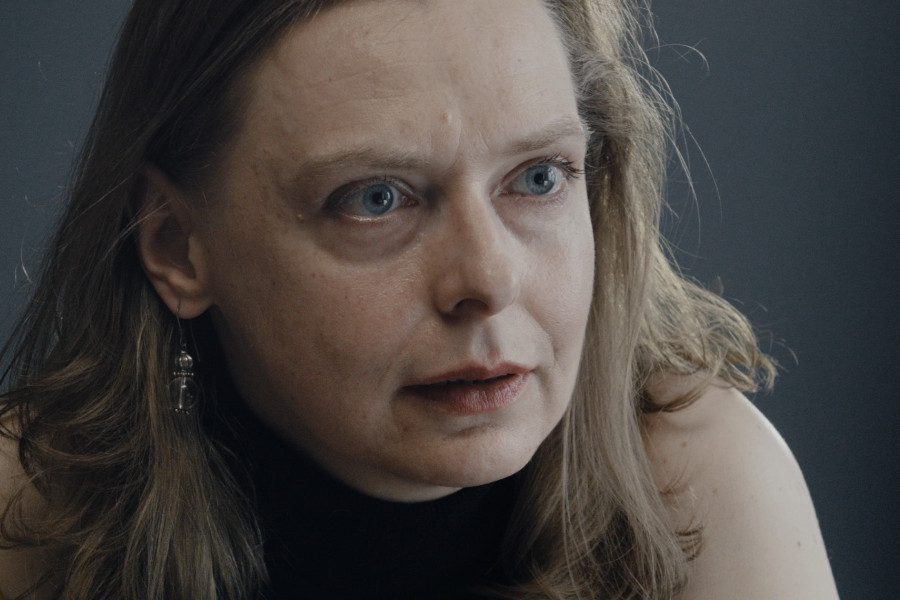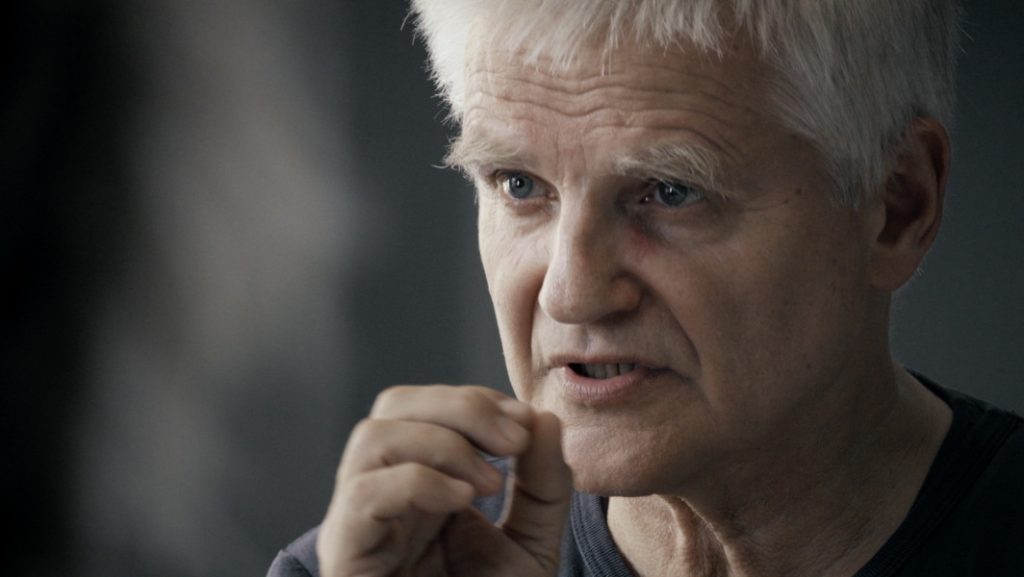(THIS ARTICLE IS MACHINE TRANSLATED by Google from Norwegian)
For subscribers: watch the movie HERE
You Have No Idea How Much I Love You is a good example of how important an opening scene is. Daughter Hania kindly asks her mother Ewa if she wants to start. Ewa looks at her, and it seems like a doubt is starting to register. The therapist, Professor Bohgdan de Barbaro, looks only from one to the other; the mother looks away. Something is about to happen.
The therapist will take the women on a difficult journey towards a better relationship between them.
You Have No Idea shows family therapy in five acts, clearly recorded: introduction and presentation of the problem; the problem degenerates; the effect this has on one person; the effect this has on the other; and then an open ending. Director Lozinski embosses the film's complex content by using an extremely stylized and simple form. All of the scenes are close-ups of the three protagonists, and although a shadow of one of the others is visible now and then – suggesting multi-camera production – the three individuals are separated. This ties each of them closely to the role of mother, daughter and therapist respectively. The different scenes are marked by the film going black, but the juxtaposition of the three people remains the same throughout the film. The camera observes – but not only, as the editing of the faces, depending on what is being said, can be read as a comment.
 Precisely. Behind this direct and simple surface free of all decor, thus lies the herd that needs to be dissolved. With so few distractions, we can pay full attention to what the two women have to say and how the therapist works: He listens, maintains focus, takes responsibility, tries to ensure that emotions are accurately and accurately described, comforts, challenges and acts as a lightning rod – all the time as attentive you can imagine.
Precisely. Behind this direct and simple surface free of all decor, thus lies the herd that needs to be dissolved. With so few distractions, we can pay full attention to what the two women have to say and how the therapist works: He listens, maintains focus, takes responsibility, tries to ensure that emotions are accurately and accurately described, comforts, challenges and acts as a lightning rod – all the time as attentive you can imagine.
 The sessions are about the mother's loneliness and the alienating effect it – or the behavior it led to – had on her daughter. An overwhelming but suffocating love stands between them. As a result, communication between them has stopped. Slowly, pieces of family history are revealed, and we gradually understand the traumas and the situation of both women. And by insisting on the need to find the right words to describe emotions and express them correctly and precisely, the therapist teaches them to express themselves and thus communicate correctly.
The sessions are about the mother's loneliness and the alienating effect it – or the behavior it led to – had on her daughter. An overwhelming but suffocating love stands between them. As a result, communication between them has stopped. Slowly, pieces of family history are revealed, and we gradually understand the traumas and the situation of both women. And by insisting on the need to find the right words to describe emotions and express them correctly and precisely, the therapist teaches them to express themselves and thus communicate correctly.
Slowly, pieces of family history are revealed, and we gradually understand the traumas and the situation of women.
Fascinating. The film also says something about the difference between a therapeutic film and a film about therapy. The first serves as therapy for the filmmaker, but is rarely relevant or meaningful to an audience. The last, which You Have No Idea is obviously an example of, reveals something about how people get hurt and how to deal with it. In this case, it is the feeling of love for each other that is at the heart of a complex problem.
Lozinski is known for his films about people; observational studies of behavior. IN You Have No Idea he, together with the therapist, slowly but surely solves the destructive effect people can have on each other without being aware of it, and far less will. The film is 75 minutes long talking heads – which sounds awful – but I'm definitely fascinated throughout the race.
Towards the end, there is a shift that some may have greater difficulty accepting than others. For those who have confidence that the strongest stories are those that convey insight into what it means to be human, this film can have a lot to offer. For those seeking one truth, it can be a little worse.


